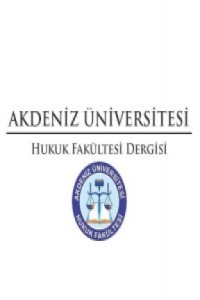YEDİ TEMEL İYİ VE KÖTÜNÜN BİRLİKTELİĞİ: JOHN FINNIS
2019 yılı Ocak ayında Oxford Üniversitesi Hukuk Fakültesi’nde okuyan bir grup öğrenci tarafından, Profesör John Finnis’in görüşleri nedeniyle ders vermesinin engellenmesi talebine yönelik bir kampanya başlatıldığı görülmektedir. Bu kampanyanın ardından yaşanan süreçlerde bir yanda modern doğal hukuk kuramı ile ünlü Profesör Finnis’in eşcinselliğe ilişkin şiddetle eleştirilen muhafazakar tutumu, diğer yanda akademik özgürlük tartışmaları ve LGBTİ+ bireylerin sürdürdükleri hak mücadeleleri ön planda yer almaktadır. Şimdilerde Finnis’in görüşleri üzerinden karşı karşıya gelen tarafların alevlerinin bir nebze olsun söndüğü, kendisinin ise bu arenadan sağ çıktığı söylenebilse de söz konusu tartışmanın ilerleyen zamanlarda daha çok su kaldıracağı aşikardır. Bu kapsamda, kendisinin farklı platformlarda yoğun eleştirilere maruz kalmasına kaynaklık eden çalışmalarını ele almanın, yaşanan tartışmaların bütünüyle anlaşılabilmesine olanak sağlayacağı düşünülmektedir. Bu doğrultuda, kuramında yedi temel iyinin ağırlıklı şekilde rol oynadığı Finnis’in, aksine yedi temel kötü ile sahip olduğu şöhretinin altında yatan gerekçeleri ortaya koyarak bu sır perdesinin kaldırılması çalışmanın başlıca amacını oluşturmaktadır.
THE TOGETHERNESS OF SEVEN BASIC GOODS AND BADS: JOHN FINNIS
In January 2019, a campaign was launched by a group of students at Oxford University Faculty of Law to demandthat Professor John Finnis be prevented from lecturing because of his views. In the processes that followed thiscampaign, on the one hand, the conservative attitude of Professor Finnis, who is famous for his new natural lawtheory, regarding homosexuality, on the other hand, discussions on academic freedom and the struggles for therights of LGBTI+ individuals have been at the forefront. Although it can be said that the opposing sides have calmeddown a bit nowadays, it is obvious that the aforementioned debate will occupy the agenda in the future again. In thiscontext, it is thought that revealing Finnis’s works, which are the source of his intense criticism on different platforms,will allow the discussions to be fully understood. Accordingly, the main purpose of this study is to unveil the mysteryby revealing the reasons underlying the fact that Finnis, in whose theory seven basic goods play a predominant role,is known with seven basic bads.
___
- Aktaş, Sururi, Modern Doğal Hukuk Bağlamında John Finnis’in Hukuk Teorisi, Atatürk Üniversitesi Erzincan Hukuk Fakültesi Dergisi, C: 8, S: 1-2, 2004, s. 3-22.
- Bradley, Gerard ve Robert, George, Marriage and the Liberal Imagination, Georgetown Law Journal, C: 84, 1995.
- Carnes, Jeffrey, Plato in the Courtroom: The Surprising Influence of the Symposium on Legal Theory, Plato’s Symposium: Issues in Interpretation and Reception, ed: James Lesher, Debra Nails, Frisbee Sheffield, Washington, Harvard University Press, 2007.
- Duncan, Richard, Homosexual Marriage and the Myth of Tolerance: Is Cardinal O’Connor a “Homophobe”? Notre Dame Journal of Law, Ethics and Public Policy, C: 10, 1996, s. 587- 607.
- Finnis John, Gerard, Bradley ve Daniel, Philpott, The Implications of Extending Marriage Benefits to Same-Sex Couples, Public Discourse: The Journal of Witherspoon Institute, Şubat 2015.
- Finnis, John, Commensuration and Public Reason, Incommensurability, Incomparability, and Practical Reason, ed. Ruth Chang, Harvard University Press, 1997, s. 215-246.
- Equality and Differences, The American Journal of Jurisprudence, C: 56, 2011, s. 17-44. (Equality).
- Is Natural Law Theory Compatible with Limited Government, Natural Law, Liberalism, and Morality ed. Robert P. George, Clarendon Press, Oxford, 1996. (Limited Government).
- Law, Morality and Sexual Orientation, Notre Dame Law Review C. 69, S. 5, 1994, s. 1049-1076.
- Law, Morality and Sexual Orientation, Human Rights and Common Good - Collected Essays: III Oxford, Oxford University Press, 2011, s. 334-352. (Sexual Orientation).
- Marriage: A Basic and Exigent Good, Human Rights and Common Good - Collected Essays: III, Oxford, Oxford University Press, 2011, s. 317-333. (Marriage).
- Natural Law and Legal Reasoning, Natural Law Theory: Contemporary Essays, ed. Robert P. George, Oxford University Press, 1992, s. 134-158.
- Natural Law and Natural Rights, Oxford, Oxford University Press, 2011. (Natural Law and Natural Rights).
- Reason, Faith and Homosexual Acts, Catholic Social Science Review, C: 6, 2001, s. 61- 69.
- Sex and Marriage: Some Myths and Reasons, Human Rights and Common Good - Collected Essays: III, Oxford, Oxford University Press, 2011, s. 353-388. (Myths and Reasons).
- “Shameless Acts” in Colorado: Abuse of Scholarship in Constitutional Cases, Academic Questions, Güz 1994, s. 10-41. (Shameless Acts).
- Knickerbocker, Brad, Gay Rights May be Social Issue of 1990s in a Dozen US States, Activists are Preparing Ballot Measures that Would Repeal Gay-Rights Laws, The Christian Science Monitor, 11 Şubat 1993, s. 1.
- Koppelman, Andrew, The Decline and Fall of the Case Against Same-Sex Marriage, University of St. Thomas Law Journal, C: 5, 2004.
- MacCormick, Neil, Doğal Hukuku Yeniden Ziyaret, çev.: Şule Şahin Ceylan, Ankara Üniversitesi Hukuk Fakültesi Dergisi, C: 64, S: 3, 2015, s. 915-930.
- Macedo, Stephen, Homosexuality and the Conservative Mind, Georgetown Law Journal, C: 84, 1995.
- Metin, Sevtap, Yeniden Doğal Hukuk Modellemesi: John Finnis, İstanbul Üniversitesi Hukuk Fakültesi Mecmuası, C: 62, S: 1-2, 2004, s. 165-207.
- McLeod, Ian, Legal Theory, Red Globe Press, London, 2017.
- Nussbaum, Martha, Platonic Love and Colorado Law: The Relevance of Ancient Greek Norms to Modern Sexual Controversies, Virginia Law Review, C. 80, S. 7, 1994, s. 1515-1651.
- Strasser, Mark, Natural Law and Same-Sex Marriage, DePaul Law Review, C: 51, 1998.
- Zamansky, Stephen, Colorado’s Amendment 2 and Homosexuals’ Right to Equal Protection of the Law, Boston College Law Review, C: 35, S: 1, 1993, s. 221-258
- ISSN: 2147-3854
- Yayın Aralığı: Yılda 2 Sayı
- Başlangıç: 2011
- Yayıncı: Akdeniz Üniversitesi Hukuk Fakültesi Dekanlığı
Sayıdaki Diğer Makaleler
AVRUPA BİRLİĞİ YARGI DÜZENİNDE İHLAL DAVASI: POLONYA ÖRNEĞİ EKSENİNDE BİR İNCELEME
1961 VE 1982 ANAYASALARI DÖNEMİNDE GREV HAKKI VE KULLANIMINA İLİŞKİN BİR DEĞERLENDİRME
TÜRK CEZA MUHAKEMESİ HUKUKUNDA BASİT YARGILAMA USULÜ
TÜRK HUKUKUNDA KAMU TÜZEL KİŞİLERİNİN BİREYSEL BAŞVURU HAKKI SORUNU
Cem Ümit BEYOĞLU, Yakup ÇOKKAŞ
YEDİ TEMEL İYİ VE KÖTÜNÜN BİRLİKTELİĞİ: JOHN FINNIS
GEMİ MÜLKİYETİNİN DEVRİNDE SİCİLE GÜVEN İLKESİ SORUNU VE ÇÖZÜM ÖNERİSİ
İNTERNET ÜZERİNDEN FAALİYETİNİ YÜRÜTEN TAŞIMA İŞLERİ SİMSARININ SADAKAT VE ÖZEN BORCU
YARGITAY KARARLARI IŞIĞINDA KONUT KAPICILARI VE BUNLARIN FAZLA ÇALIŞMASI
